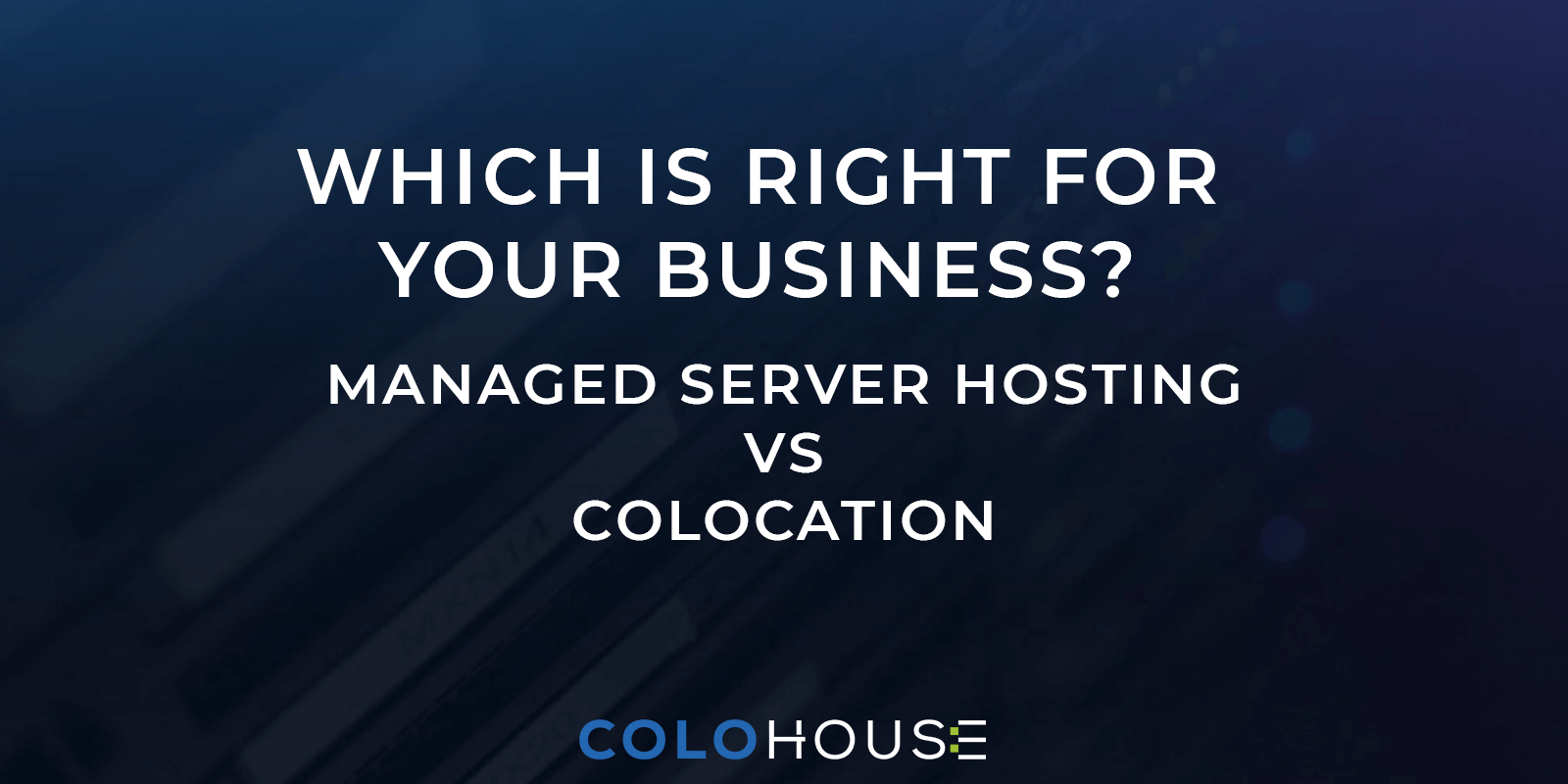A business’ IT infrastructure needs are unique regardless if they are a small business or global enterprise. IT solutions can be customized to fit the exact requirements needed for each business.
Multiple options are available if you are looking to have your IT infrastructure off-site. Often this choice come down to the differences between managed hosting and colocation. To better help understand which a better fit for your business might be, we will compare these two options: colocation and managed services
Managed server hosting or colocation, either will give your business the opportunity of relocating your IT services off site and you will have the opportunity to remove it all together. While this is happening, your utility usage and data center footprint will be minimized. This sounds great for your business. However, the answer to this question can be found within all of the details. It will also depend on the workload and needs of your business.
Managed Services
Managed Hosting refers to leased dedicated servers that are set up, secured, monitored and maintained by an internet service provider. Managed services will enable your IT professionals to focus on other priorities within the business. Your ISP will provide you with services like:
· Security
· Reporting
· Setup
· Monitoring
· Software updates
· System administration
Both small businesses and global enterprises alike have use cases for managed services. Managed services allows for you to customize and scale your IT needs as your business.
Colocation
Whether its for business continuity, industry regulations or just space or resources, most companies have their infrastructure off-site. Colocation allows you to remain in full control and management of your equipment with the added resource of remote hands for minor updates or emergencies.
The top benefits of colocation are:
Secure
Colocation is typically a non-shared space giving you peace of mind that no one except authorized personnel would access your IT equipment.
Full Control
Colocation allows your for your IT team to be in full control and manage
Reliability
Data center are equipped to handle any outages or natural disasters. Many colocation facilities share their contingency plans to ensure that your customers will not be affected during an outage.
Consistency:
Budgeting is always important for any business. Colocations allows you to lock in an annual contract and price, in some case multi-year contracts, to ensure that your business will not be seeing any fluctuation in power or connectivity cost.
Managed Hosting Compared To Colocation – Which Is Better?
Now that we have discussed managed services and colocation, you will now have a good understanding of the advantages of each option. Most businesses opt for colocation hosting first, but then they will decide to use managed hosting, particularly when it comes to upgrading their hardware. That said, whatever option you decide on, be sure to look at what your business requirements are first. These days, many businesses are deciding to use a combination of each especially when they have mixed workloads. The Hybrid IT days have arrived.
Contact us to learn more about Colocation or for more information on how ColoHouse provides Colocation, visit our Colocation page.















